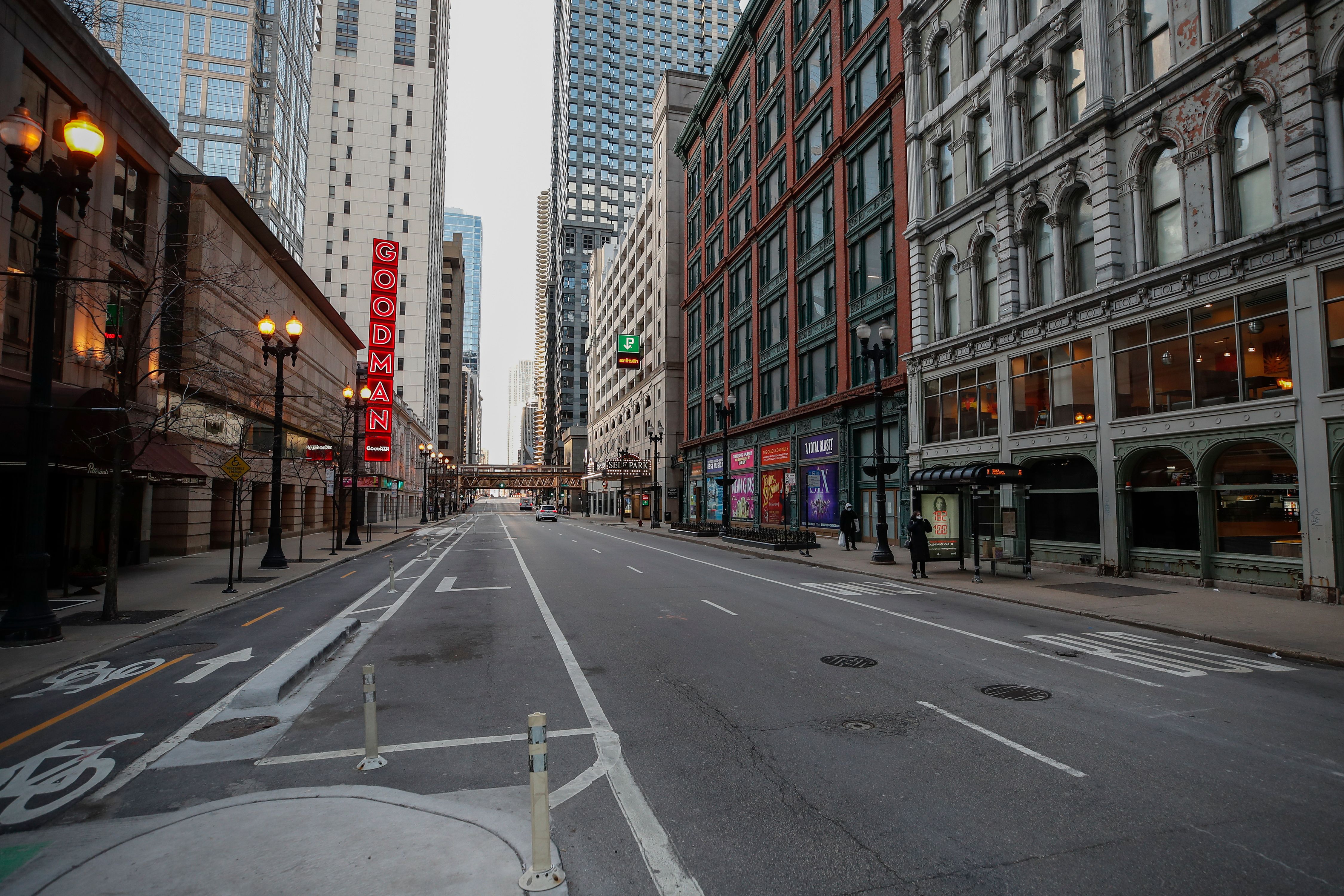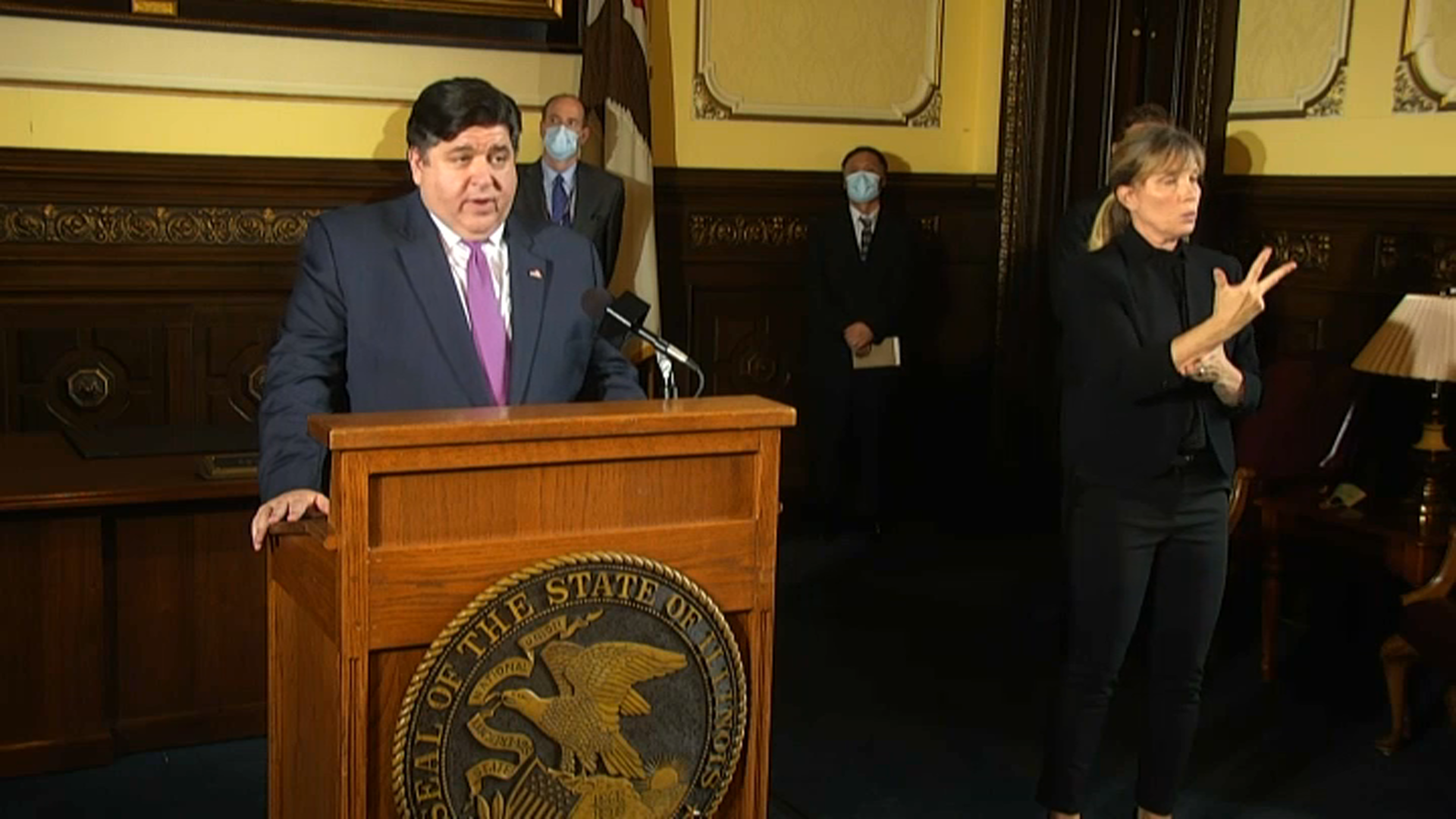Indoor dining will be allowed to resume with capacity limitations in Chicago on June 26, the mayor announced Friday.
The loosening of restrictions will come on the same day Illinois is set to enter phase four of the state's reopening plan. Though Chicago won't be entering its own phase four until at least July 1, Lightfoot said "indoor dining and drinking can begin at restaurants, bars, breweries and other eating and drinking establishments" early.
“Our neighborhood restaurants, bars, and breweries all stand as among the most cherished parts of our communities and are integral to the fabric of our entire city,” Lightfoot said in a statement. “Like all Chicagoans, I am personally excited to see them take these new, cautious steps towards safely reopening, and commend their collaboration throughout this unprecedented crisis. As we move ahead in the coming weeks and months, I look forward to strengthening our partnership as we continue our journey in rebuilding our city and becoming stronger and more equitable than we have ever been.”
Indoor dining will be restricted to 25% capacity under the mayor's plan with up to 50 people allowed per room or floor. Tables must also stay 6 feet apart with 10 people or fewer per table.
Venues without a Retail Food Establishment License will be limited to a maximum of two hours per party and alcohol sales at bars and restaurants must still end at 11 p.m. each night. The sale of alcohol for carryout or delivery must end at 9 p.m. each night.
Currently, restaurants and bars can only offer outdoor dining, which comes with space limitations and leaves capacity dependent on weather.
The state is set to move into phase four of its reopening plan as early as June 26. As of Friday, all four health regions were meeting the metrics to move to that stage as scheduled, Gov. J.B. Pritzker said.
But Chicago is on its own plan - and Lightfoot declined to say if the city will be able to move to phase four on its July 1 date.
"I can't predict a particular date," she said this week. "You have to be guided by the data. Period."
Last week, the commissioner of the Chicago Department of Public Health, Dr. Allison Arwady, announced adjustments in the metrics needed to consider moving to phase four.
Among those metrics are:
- a percent positivity rate of less than 7%
- adequate hospital capacity
- at least 4,500 tests per day, maintained, or increase to 6,500 tests per day
- contact tracing investigations of 90% of cases within 24 hours of positive results
- Stable or declining emergency department visits for influenza-like illness or COVID-like illness over 21 days
- Stable or declining rates of cases resulting in hospital admissions and deaths over 28 days
- Declining rate of new cases over 28 days and/or less than 200 new cases per day over 14 days
Currently, the city is on track to meet all of those metrics, except for testing capacity, which saw disruptions due to protest demonstrations and inclement weather.
When asked about the earliest the city could move forward to the next phase of reopening, Arwady said "we could be looking at July 1."
"If things went really well... we could go even before then," she said.
But health officials still worry the city could see a spike, similar to other states in the U.S.
Recently, a Florida health care worker and 15 of her friends tested positive for COVID-19 after gathering for a birthday celebration at a newly-reopened pub in Jacksonville.
“We’re seeing increases in cases in about 20 others states that reopened, so our concern is real,” Arwady said. “No single measure will determine whether we move forward or backward but we’ll be watching all of them as we make that call.”
Lightfoot echoed that comment Thursday, saying officials are "watching with great concern other states, other jurisdictions that opened up without cautiously doing so." She noted some are seeing "the highest infections at any point in the arc of this virus."
"We will not allow that to be the narrative of Chicago but that really depends on each of you being smart, being careful, wearing masks when you're out in public, making sure that you're adhering to social distancing and continuing to doing the hygiene requirements that make a difference," Lightfoot said.
Despite concerns over a spike following mass protests in the city, Arwady said Friday that capacity could even be increased for indoor dining if metrics continue to improve.
“While we’re all excited to further re-open our city we must do it the right way and continue to follow the guidance and take the necessary precautions,” she said in a statement.
Arwady said that if the city continues to see progress "capacity at restaurants could be expanded to 50%."
In order for that to happen, the city would need to reach an average of fewer than 100 new cases a day, which would move Chicago into the moderate-risk category rather than the higher-risk category it is in now under CDC guidelines.



